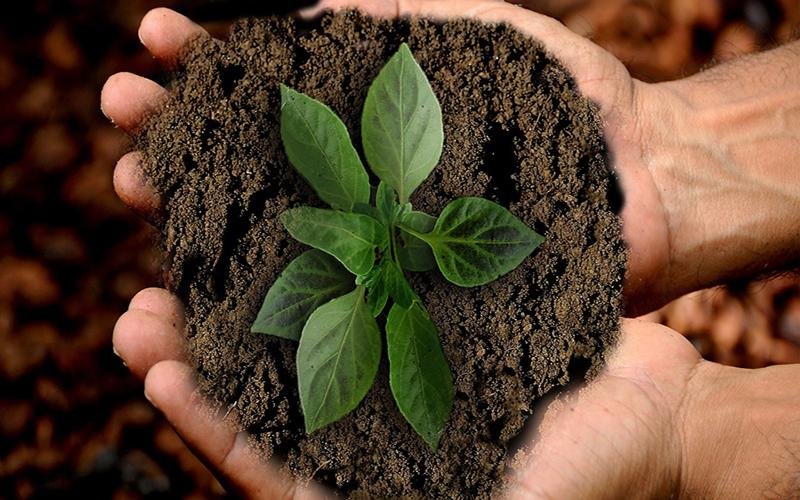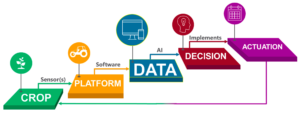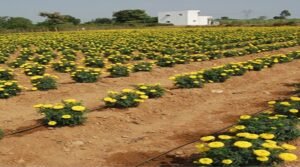Sustainable Agriculture And Food Problems
With the growing population, there is a need to put in more effort and innovation to sustainably increase the agricultural production rate and improve the Global supply chain, decrease food losses and waste and ensure that all the peoples who are suffering from hunger and malnutrition have access to nutritious food. The international community believes that it is possible to eradicate hunger within the next generation and many people are working together to achieve this goal.
Agriculture development plays a major role in improving Food Security and Nutrition as it increases the quantity and diversity of food. Also, Agriculture is the main source of income for the majority of people living in the most extreme poverty and their earning from agriculture is the key for the people who work in this sector and directly determines their food security.
Difference between sustainable farming and organic farming.
Agriculture is both a cause and a solution to many environmental problems as it is linked to biodiversity loss and climatic change, but sustainable agriculture has the unique potential to mitigate climate change and strengthen resilience to the negative impacts of climate change. Food security is monitored in near real time by different organisations and various initiatives are taken at the International, National and Regional scale, where they work together by creating the infrastructure for distinct groups of stakeholders to come together and work to solve the economic, social and environmental challenges affecting them.
Sustainable Food and Agriculture is very important for the world and the FAO’s vision for Sustainable Food and Agriculture is the one in which food is nutritious and accessible to everyone and natural resources are managed in a way which could maintain the ecosystem functions in order to support current as well as the future human needs.
Here in this article, we will study more about Sustainable Agriculture.
What is Sustainable Agriculture?
Sustainable agriculture is the one which produces abundant food without depleting the earth’s resources or polluting the environment. It is also the agriculture of social values whose success is indistinguishable from the vibrant rural communities, rich lives for families on the farms and wholesome food for everyone.

The farmers and many agricultural thinkers have established a very strong set of guiding principles for sustainability based on stewardship and economic justice. These principles are:
- Know your Markets, protect your Profits, and add value to your Products.
- Build soil structure and fertility
- Protect water quality on and beyond the farm
- Manage pests ecologically and use minimal amount of pesticides
- Maximize biodiversity on the farm
How to do agriculture waste management?
The major goal of Sustainable agriculture is to meet the society’s food needs in the present without compromising the ability of future generations to meet their own needs. There are three main objectives for integrating sustainable agriculture – healthy environment, economic profitability, social and economic equity, and every person who is involved in the food system i.e growers, food processors, distributors, retailers, consumers and waste managers can play a major role in ensuring Sustainable Agricultural System.
The people who are working in Sustainable Agriculture and Sustainable Food Systems practice many methods, such as the Growers use methods to promote soil health, maximize water use, lower pollution levels on the farms; Consumers and Retailers look for value based foods which are grown using methods that can promote farm worker wellbeing and which are environmental friendly or which could strengthen the local economy; and the Researchers in Sustainable Agriculture work by combining Biology, Economics, Engineering, Chemistry, Community development and many others in their discipline.
Sustainable Agriculture is much more than a collection of practices and it is also a process of negotiation where there is a push and pull between the interest of an individual farmer or of people in a community as they work together to solve many complex problems about how we can grow our food and fibre.
Sustainable Food And Agriculture
How to take organic certification in India?
To ensure sustainability, Agriculture must meet the needs of present and future generations and also ensure profitability, environmental health and social and economic equity. Sustainable Food and Agriculture contributes to all the four pillars of food security which is availability, access, utilisation and stability and the dimensions of sustainability as well i.e environmental, social and economic. The Food Association Organisations (FAO) promote sustainable Food and Agriculture to help the countries worldwide in achieving Zero Hunger and the Sustainable Development goals.
The Zero Hunger Challenge has gathered support from many member states and entities and it calls for:
- Zero stunted children under the age of 2
- 100% access to adequate food all year round
- All food systems are sustainable
- 100% increase in a smallholder productivity and income
- Zero loss or waste of food

The Sustainable Development Goal is to, “End hunger, achieve food security and improved nutrition and promote sustainable agriculture” and it also recognises the inter linkage among supporting sustainable agriculture, empowering the small farmers, promoting gender equality, ending rural poverty, ensuring healthy lifestyles, tackling climatic changes and various other issues.
Organic Farming Vs Chemical Farming
The Food and Agriculture Systems are under a great threat because they are facing unprecedented challenges worldwide like:
- increasing demand for food for a growing population
- rising hunger and malnutrition
- adverse climate change effect
- overexploitation of natural resources
- loss of biodiversity
- food loss and waste
Due to these challenges, it has undermined the world’s capacity to meet its food needs in the present as well as future or We can say that very few people have adequate access to enough nutritious food.
Current State of Food Security
The world was committed to the goal of ending hunger, food insecurity and all forms of malnutrition by 2030. At that time, we were very optimistic that by adopting transformative approaches, the past progress could be accelerated and we can put ourselves on track to achieve this goal. But, the past four editions of The State of Food Security and Nutrition in the World (SOFI) has revealed a very humbling reality and it has been seen that the world has not been progressing either towards ensuring a safe, nutritious and sufficient food for all the people all year round, or in eradicating all forms of malnutrition.
How to make organic Jeevamrutha?

On the contrary, the climate variability and extremes, and various economic slowdowns and downturns have been the major hindrance in slowing down the progress, most particularly, where the inequality is high. The COVID-19 pandemic has made the pathway towards the SustainableDevelopment Goals even more steeper. Also, from 2014 to 2019 there has been virtually no changes and the Prevalence of Undernourishment (PoU) has climbed to around 9.9% in 2020 where it was only 8.4% a year earlier. It has also been estimated that 720 to 811 million people in the world have faced hunger in the year 2020 which is approximately 118 million people more than that were in 2019.
FAO Strategic Objectives
FAO has established 5 strategic objectives for eradicating Global hunger and poverty which are the action pillars in the region and which also focuses on strengthening productive processes for them to become more abundant, diverse, healthy and sustainable. These five objectives are:
- Help eliminate hunger, food security and malnutrition
- Make Agriculture, Forestry and Fisheries more productive and sustainable
- Reduce rural poverty
- Enable inclusive and efficient agricultural and food systems
- Increase the resilience of livelihoods to threats and crisis
Chemical Fertilizer and its Impact on Agriculture.

The members of the FAO have declared that it is very important to prioritize the sustainable production of basic and nutritious foods so as to guarantee food security, and for this we need to promote more socially productive Innovation and marketing of products and the Family Agriculture system. These sustainable production practices will minimise pressure on natural resources through appropriate management and preservation of biodiversity, reducing the use of consumables which are harmful for environment and using polyculture and native varieties and at the same time, analyze the environmental risks due to Climate Change and the increase of resilience, to guarantee rural and urban life system.
Key Principles of Sustainability for Food and Agriculture
The key principles for sustainability of Food and Agriculture are:
- Increase productivity, employment and value addition in food systems.
- Protect and enhance natural resources
- Improve livelihoods and foster inclusive economic growth
- Enhance the resilience of people, communities and ecosystems
- Adapt governance to new challenges
How to do Agriculture waste management?
Sustainable Business Practices
Sustainable Business practices are environmental friendly and socially responsible initiatives which are implemented by companies to reduce the environmental footprint which helps in contributing to equitable social development. These initiatives depend on the financial resources and the extent to which they are willing to reduce the carbon emissions and promote Social Sustainability. Also, the implementation of these practices helps the companies to save money as well.
The Food and Agriculture sector is one of the world’s largest industries which is responsible for approximately 26% of the Global Greenhouse Gas emissions and there is a need for sustainable business practice in this industry to reduce the carbon emissions and promote overall sustainability. Here, we are mentioning 10 such practices which should be implemented in the Food and Agriculture industry to promote Sustainable Agriculture.
What is The Future of Agriculture And Farming ?
- Methane Digesters
- Composting
- Farmland Irrigation
- Biodegradable Packaging
- Silvopasture
- Nutrient Management
- Reduce Food Waste
- Reduce Energy Waste
- Reduce Water Waste
- Greening your Supply Chain
Conclusion
The agricultural system should become more productive and less wasteful. Sustainable agriculture practices should include both production and consumption and they must be pursued from a holistic and integrated perspective.
Land, healthy soils, water and plant genetic resources are the key inputs for food production and their scarcity in many parts of the world has made it very imperative to use and manage them sustainably. By boosting their yields on existing agricultural lands, including Restoration of degraded lands through Sustainable Agriculture practices can help in relieving pressure of clearing forests for agricultural production.
Natural Farming Vs Factory Farming.
The wise management facilities and the storage technology should be combined with development of new drought resistant crop varieties, so that it can contribute to sustaining the dry lands productivity. By halting and reversing the land degradation can also be very critical in meeting the future food needs. However, Desertification, Land degradation and Drought are still evolving. There are many elements of the traditional farmer knowledge which can be enriched by latest scientific knowledge that can support productive food systems through sound and sustainable soil, land, water, nutrient and pest management and more extensive use of organic fertiliser.

Increasing integrated decision making processes at National and regional levels can address trade offs among agriculture, water, energy, land and climate change. There are many expected changes in temperatures, precipitation and pests associated with climate change. The Global community is called upon to increase investment in Research, Development and Demonstration of technologies to improve the sustainability of food systems everyday and by building resilience of local food systems, it can help in averting large scale future shortages and ensure food security and global nutrition for all.




